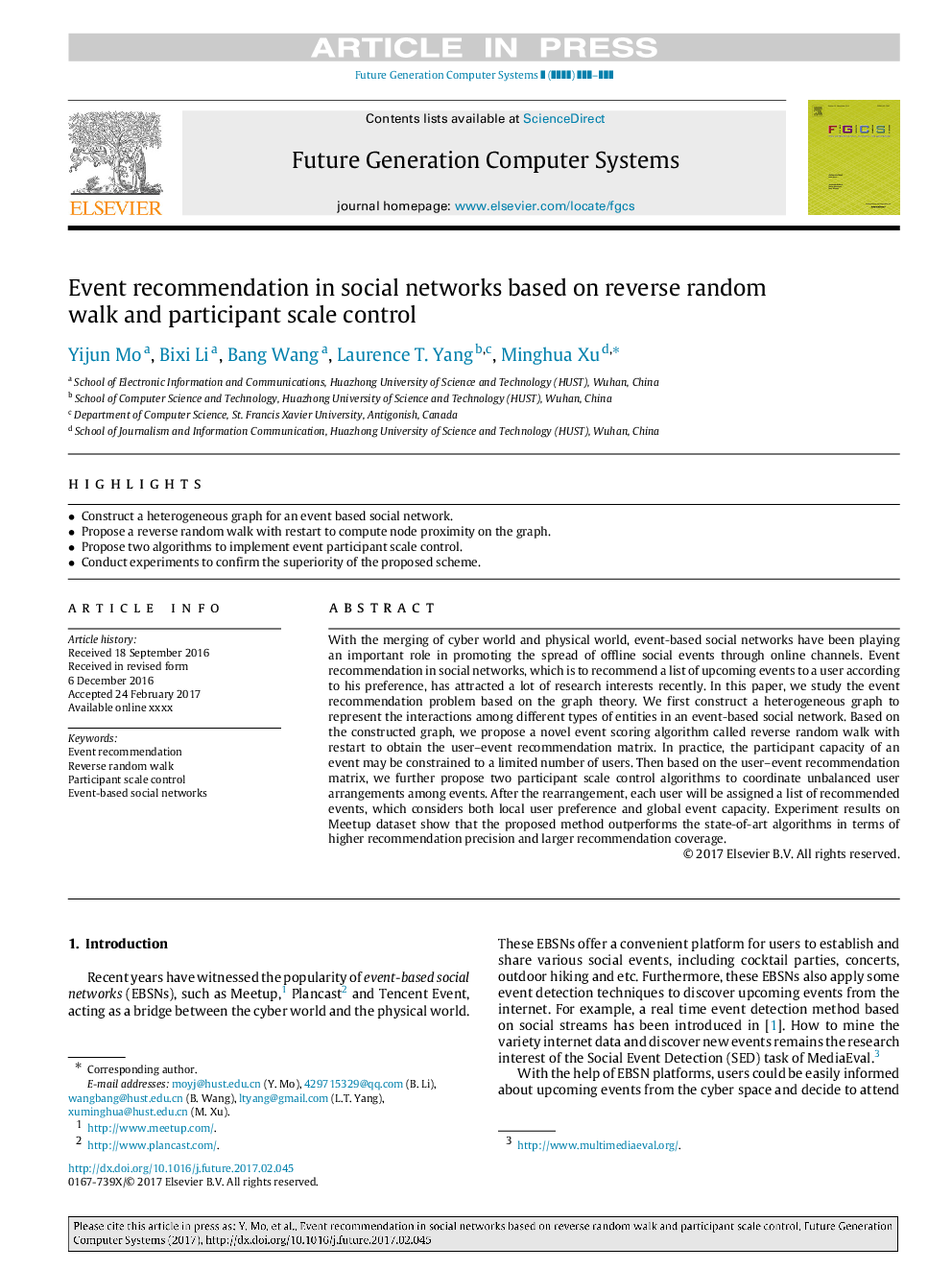| Article ID | Journal | Published Year | Pages | File Type |
|---|---|---|---|---|
| 6873444 | Future Generation Computer Systems | 2018 | 13 Pages |
Abstract
With the merging of cyber world and physical world, event-based social networks have been playing an important role in promoting the spread of offline social events through online channels. Event recommendation in social networks, which is to recommend a list of upcoming events to a user according to his preference, has attracted a lot of research interests recently. In this paper, we study the event recommendation problem based on the graph theory. We first construct a heterogeneous graph to represent the interactions among different types of entities in an event-based social network. Based on the constructed graph, we propose a novel event scoring algorithm called reverse random walk with restart to obtain the user-event recommendation matrix. In practice, the participant capacity of an event may be constrained to a limited number of users. Then based on the user-event recommendation matrix, we further propose two participant scale control algorithms to coordinate unbalanced user arrangements among events. After the rearrangement, each user will be assigned a list of recommended events, which considers both local user preference and global event capacity. Experiment results on Meetup dataset show that the proposed method outperforms the state-of-art algorithms in terms of higher recommendation precision and larger recommendation coverage.
Related Topics
Physical Sciences and Engineering
Computer Science
Computational Theory and Mathematics
Authors
Yijun Mo, Bixi Li, Bang Wang, Laurence T. Yang, Minghua Xu,
